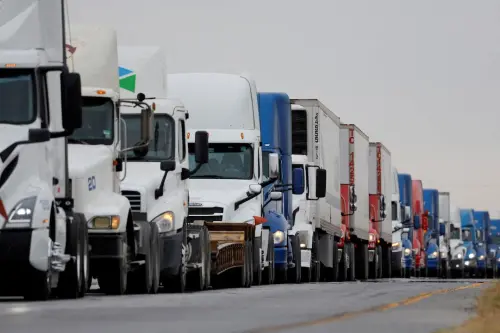Canada and Mexico are expected to further their efforts this week to prevent facing punitive 25% tariffs on their exports to the U.S. They are engaging in talks to demonstrate to President Donald Trump's administration the effectiveness of their actions to enhance border security and combat fentanyl trafficking before the March 4 deadline.
Both Canada and Mexico have bolstered border security measures to avoid the detrimental impact of tariffs on the tightly interconnected North American economy.
Dan Ujczo, an attorney specializing in U.S.-Canada trade affairs, emphasized that the ongoing negotiations and reports from the Department of Homeland Security will play a crucial role in determining whether the suspension of tariffs will be extended. However, Ujczo anticipates that President Trump will likely maintain the tariff threats until there is clear evidence that border measures are effectively curbing migrant and fentanyl flows.
The White House, U.S. Trade Representative's office, and Commerce Department have not commented on the negotiations happening this week, leading up to the March 4 deadline. The potential tariffs would affect over $918 billion in U.S. imports from Canada and Mexico, spanning various sectors from automotive to energy.
In light of recent tariff escalations and trade actions, the looming threat of tariffs could prompt early renegotiations of the U.S.-Mexico-Canada trade agreement. Ujczo also highlighted Trump's discontent with auto imports from Mexico and Canada as a driving force behind these potential tariff measures.
In response to the situation, Mexico is deploying thousands of national guard troops to its northern border, while Canada has initiated various measures to combat the smuggling of opioids. Prime Minister Justin Trudeau has pledged to work closely with President Trump to address border concerns, emphasizing joint efforts to combat the fentanyl trade.
The U.S. administration has flagged Canada, Mexico, and China as pathways for fentanyl shipments into the U.S., underscoring the challenges posed by the suspension of duty-free exemptions for low-value packages. Despite these complexities, the focus remains on strengthening border security and tackling illicit drug trafficking in the region.
